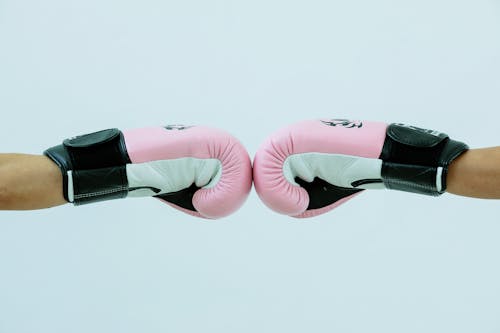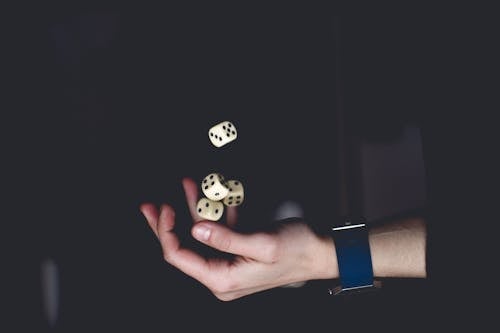"Buboy where are you? ... What happened, is the fight over?"
Knocked out and sprawled across the canvas, Manny Pacquiao looked for and asked his childhood buddy after he had regained consciousness. Juan Manuel Marquez hit Pacquiao's exposed chin with a stunning right hand which Marquez called his "perfect punch."
"I got hit by a punch I didn't see... I got careless," Pacquiao later said during the post-fight interview.
That's a good lesson to the opposition today amid the hustle and bustle of the upcoming election. The opposition got hit by a punch it didn't see in both the 2016 and 2019 elections. What happened then? To explain, I will use, not a boxing metaphor (sorry macho men), but a double-barreled shotgun analogy.
FIRST BARREL: WEAPONIZED
Below excerpted from the commencement speech of Maria Ressa, Nobel Peace Prize laureate, delivered at 2019 Columbia Journalism School graduation.
"The battle for truth. This is at the heart of protecting our democracies. We know, have always known, that information is power. And these times as you join us at the frontlines, these times prove that. Propaganda has always been around. Everyone will tell you that but we've never felt that like today because technology has enabled mass manipulation at a scale I could never have imagined. At its heart, is this creative destruction of our information ecosystem. Exponential attacks online are new weapons unleashed against journalists and activists around the world. It is personal. It is psychological. It is meant to pound you to silence.
"In 2016, after a series exposing government's propaganda machine, we called it propaganda war, I was pounded by the hour, by an average of 90 hate messages per hour. This is symmetrical warfare, information operations, and it comes directly to your cell phones. No news organization, no one, can protect you from that.
"At the heart of all this, our American social media technology platforms, they've taken away the gatekeeping power of the journalists but they neglected the responsibilities. They are now the largest distributors of news, allowing lies to spread faster than facts. Laced with anger and hate, these lies fuel the worst of human nature, imploding democracies around the world. This is "death by a thousand cuts." Like an accelerant in a fire, they help elect populist and authoritarian-style leaders. In the case of the Philippines, it helps maintain the popularity of our president. He's been popular. It's trumpeted exponentially on Facebook, astroturfing and creating a bandwagon effect that had an impact on our midterm election.
"Just last night, our new senators were elected. And for the first time since 1938, not one opposition senator is joining the Philippine Senate."
Maria Ressa's speech below delivered at Yale Jackson Institute for Global Affairs, March 3, 2020.
"[T]his is the fourth year in a row that the Philippines is the social media capital. 100% of Filipinos are on the internet, 100% are on Facebook. Facebook is our internet. I interviewed Cambridge Analytica whistleblower, Chris Wiley, and I asked him, "What role did the Philippines play?" He called (Philippines) the Petri dish. He said in countries like ours, because of the young population, 100 million people, the median age is 23 years old. Because of that, they tested these tactics of mass manipulation in our country, and if it worked on us, they brought it to you. They brought it to the United States to Europe. So Petri dish is his word and he said that if it worked in the countries like the Philippines and Nigeria, that they would then port the tactics over.
"Historical revisionism. It's not done by say, starting here and jumping there, you do it little, step by step. How do you turn Marcos from someone kicked out of the country to a hero?
"And they did it by cut and paste comments in Facebook pages and the comments look normal. It's just meant to shift the way you think a little bit."
[It is worthy to note that although the right-wing Cambridge Analytica's malpractice was uncovered in a scandal that shook the tech world and subsequently brought about its
"[W]e have to be very subtle. It may be that we have to contract under a different name. A different entity, with a different name. So that no record exists with our name attached to this all."
Caution: Keep an eye on Cambridge Analytica's local copycats and Sino-versions.
FIRST SHELL:
Resentment (single source of totalitarian ideologies) is the lethal shell loaded in the first barrel of weaponized social media. Shooting a barrage of resentful messages laced with noxious anger and toxic hate, these lies fuel the worst of human nature that can implode the kernel of democracy. Resentment is bombarded, not against specific individuals, but against a group, conceived as bearing a pang of collective guilt and punishment. Exhibit A: "Yellows"
SECOND BARREL: WEAPONIZED LAW
Randy David in his PDI column "Weaponizing
"Who would have thought Chief Justice Maria Lourdes Sereno, after five years of leading the country's highest court, could be removed from her position by quo warranto – a legal action that questions a person's authority to exercise or occupy a public office?"
"And who would have thought that a sitting senator, Leila de Lima, Mr.Duterte's fiercest critic, could be arrested and detained without bail, for conspiracy to trade in illegal drugs – on the basis of testimonies of convicted drug criminals?"
"But, nothing perhaps can equal the absurdity of reopening the rebellion and coup d'etat charges against Sen. Antonio Trillanes IV, another outspoken critic of Mr. Duterte, on the ground that the amnesty he received, which had prompted the dropping of these charges, was void ab initio."
SECOND SHELL:
This warning by one officer to a reporter during Maria Ressa's arrest
"Be silent. Or, you're next."
OPPOSITION POLITICAL CANVAS
The above scene is the political canvas the opposition has been sprawling on after it was knocked out in both the 2016 and 2019 elections. Let me conclude this article with George Santayana's forewarning:
"Those who cannot remember the past, are condemned to repeat it."
All Souls Day is set aside for honoring the dead -- a
1. Drug war total death tolls: 6,191 (PDEA as of 10/31/2021, CHR reported a higher figure)
2. ICC will uncover everything during its drug war investigation.
3. History is a stern judge of men for the legacies they leave behind.
"I got hit by a punch I didn't see... I GOT CARELESS."








